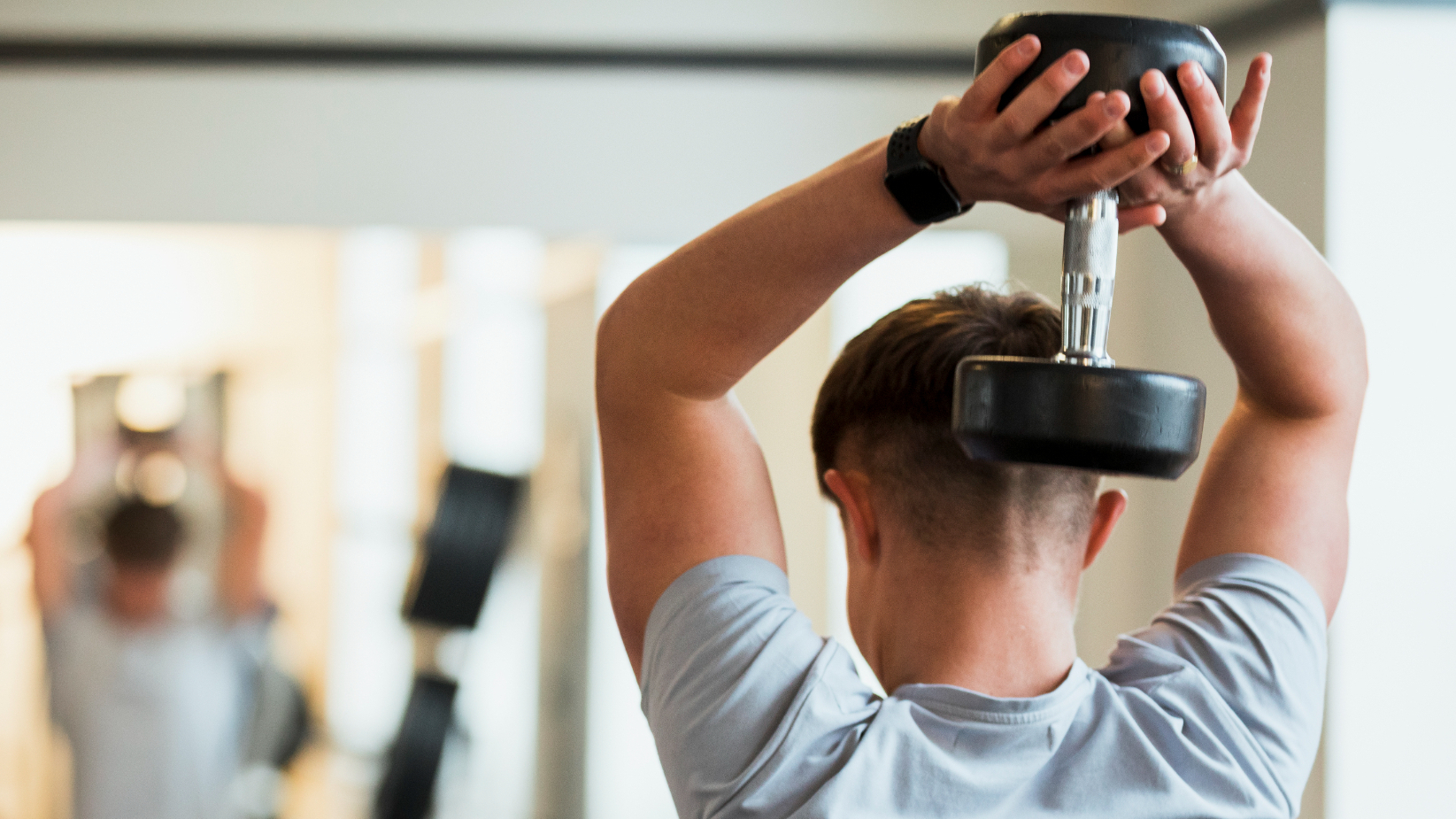
Start your week with achievable workout ideas, health tips and wellbeing advice in your inbox.
You are now subscribed
Your newsletter sign-up was successful
If you've ever wondered what mental strength means or how to increase mental strength, we've jumped in with two feet on the topic. Developing this skill could improve your overall wellbeing, reduce stress, and increase resilience.
Let's face it — life throws a lot at us. You might feel like you're smashing it one day only to feel totally overwhelmed the next. And although this is normal, there's a crucial factor determining how well you cope with brushing off the ups and downs called mental strength.
While there doesn't appear to be a clear definition of 'mental strength,' the term is typically interchangeable with mental resilience and emotional wellbeing, often developed through meditation or mindfulness techniques.
Like you can train your muscles to improve their physical strength, you can also train your mental muscles. Unlike the gym, you don't need physical equipment to develop mental strength, just a few self care ideas and lifelong mindset tools to help.
We'll guide you through how to increase your mental strength below and why it matters.
What is mental strength?
According to Dr. Rami Hashish, injury specialist and founder of the National Biomechanics Institute, mental strength is "a set of intrinsic attributes that help someone navigate and persevere in difficult situations."
Those who have developed mental strength still experience negativity or barriers, but they've harnessed coping mechanisms or a skillset that help them navigate it while staying mentally 'strong.'
Start your week with achievable workout ideas, health tips and wellbeing advice in your inbox.

Dr. Rami Hashish is the founder and director of the National Biomechanics Institute and a body performance and injury expert. After obtaining his Ph.D. in biomechanics at the University of Southern California, he was a clinical instructor of physical therapy before founding the National Biomechanics Institute.
Those less mentally resilient might find it harder to cope, negatively impacting factors like sleep quality, stress levels, and daily performance. Let's take physical strength as an example.
A powerlifter pushing a barbell overhead still finds the weight tough to lift, but they've developed muscular strength to help achieve it. The same goes for mental fitness — you could build mental muscles to cope and respond to the emotional weight of life events.
Can you improve your mental strength?
Yes, it's possible to increase mental strength. And by regularly practicing a set of mindset tools, you could develop resilience and improve mental wellbeing without sacrificing your health.
Research in Frontiers of Psychology found that mental toughness is linked to 'various positive psychological traits,' including efficient coping strategies and positive outcomes across education, sports performance, and more.
That doesn't mean you won't experience down days, but mental toughness techniques could improve your response to them, and according to Dr. Hashish, there's more than one way to do it.
"Mental strength could be improved through various means," he explains. Self care is an ongoing process, so anyone learning to increase mental strength should try various techniques and choose what works for them.
According to the same research, up to half of mental toughness variation depends on genetic factors that suggest a 'mental toughness advantage.' In short, some people find it comes more naturally than others, but that doesn't mean you can't learn to increase yours.
How to increase your metal strength

The benefits of increasing your mental strength include reduced anxiety and stress levels, improved motivation, mood, self-awareness, and adaptability, and it could even help you sleep better.
According to one review published in The Open Sports Sciences Journal, athletes scoring high on mental toughness experienced frequent 'flow' (immersed in their experiences), measuring greater self-esteem, goal orientation, and self-efficacy.
But if learning how to build mental strength doesn't come naturally to you, fear not. These techniques to increase mental strength could help.
1. Practice mindfulness
Mindfulness is an umbrella term for many self care techniques like mindful walking, for example. This study published in the journal Mindfulness sits alongside a substantial amount of research showing that mindful walking could boost your metabolism and mood and reduce stress.
If you want to learn how to meditate, these meditation tips for beginners will help you get started. Other ideas include a yoga and mindfulness practice centered around mind-body connection, breathing, and movement.
These techniques slow down the instinct to react so that you can assess decisions more methodically, and while you might not notice straight away, like building muscle, it develops over time.
A regular mindfulness practice, however big or small, helps to take the body out of fight-or-flight (sympathetic nervous system) and into a calm, relaxed state (parasympathetic nervous system), allowing your body to repair and heal.
This short breathing exercise is a great way to start, and it only takes 20 minutes to build mental strength. You don't need any equipment, just a quiet space where you can sit and focus on your breath for a short while.
2. Try something new
"Psychological approaches to improving mental strength include properly assessing challenges, as well as slowly engaging in activities that you may otherwise avoid due to anxiety," Dr. Hashish tells us.
You could build mental strength by proactively seeking opportunities for personal growth and stepping outside your comfort zone. People who adopt a "growth mindset" — a willingness to grow, learn and adapt — tend to have a positive mindset and a greater sense of self.
Research conducted by UW Medicine found that new experiences are great for your emotional health, providing you with a dopamine "happy" hit and leading to feelings of empowerment.
It might feel uncomfortable, but the anticipation is often worse than the event — a term discussed by Harvard Medical School as 'cognitive distortion,' which means your internal mental filters fuel anxiety based on previous experience.
3. Repeat, repeat, repeat
The European Journal of Social Psychology believes building a habit takes between three to nine weeks and nine months. Whether you practice daily journaling or connect with a loved one, build mental strength through repetition, and try not to judge yourself on a difficult day.
Instead, assess what happened, note any feelings, and build some safeguarding practices for next time. That happy hormone could help you push back when you feel stressed or anxious.
Can you build mental strength through exercise?

Dr. Hashish explains that research has shown a beneficial relationship between exercise and developing mental strength. "In other words, exercise has been shown to improve mental strength while mental conditioning could improve physical strength."
Take sports as an example. Athletes exhibit a great deal of mental and physical resilience, but which came first? According to Dr. Hashish, both play into each other. "When someone is anxious, depressed, or down, they have a greater tendency to 'give in' to a difficult situation," he says.
"Whereas, if someone feels confident and void of anxiety and depression, they have a greater tendency to tackle challenges and brainstorm difficult situations. Considering exercise has been shown to improve self-esteem and reduce symptoms of anxiety and depression, the benefits of exercise on mental strength are evident."
It's a view shared by three doctors in a letter published in the journal Primary Care Companion. So, if you're new to exercise, try gentle movement like this walking exercise routine and build up slowly.
These techniques can boost mental strength, but they might not always do the trick. If you need immediate help, you can use the US government's dedicated mental health website.
Alternatively, you can find advice from the mental health charity Mind or talk to the Samaritans by email at jo@samaritans.org or call 116 123 for free in the UK.

Sam Hopes is a level III fitness trainer, level II reiki practitioner, and resident fitness writer at Future PLC, the publisher of Fit&Well. Having trained to work with both the mind and body, Sam is a big advocate of using mindfulness techniques in sport and aims to bring mental wellbeing to the forefront of fitness. She’s also passionate about the fundamentals of training and how we can build more sustainable training methods. You’ll find her writing about the importance of habit-building, nutrition, sleep, recovery, and workouts.
